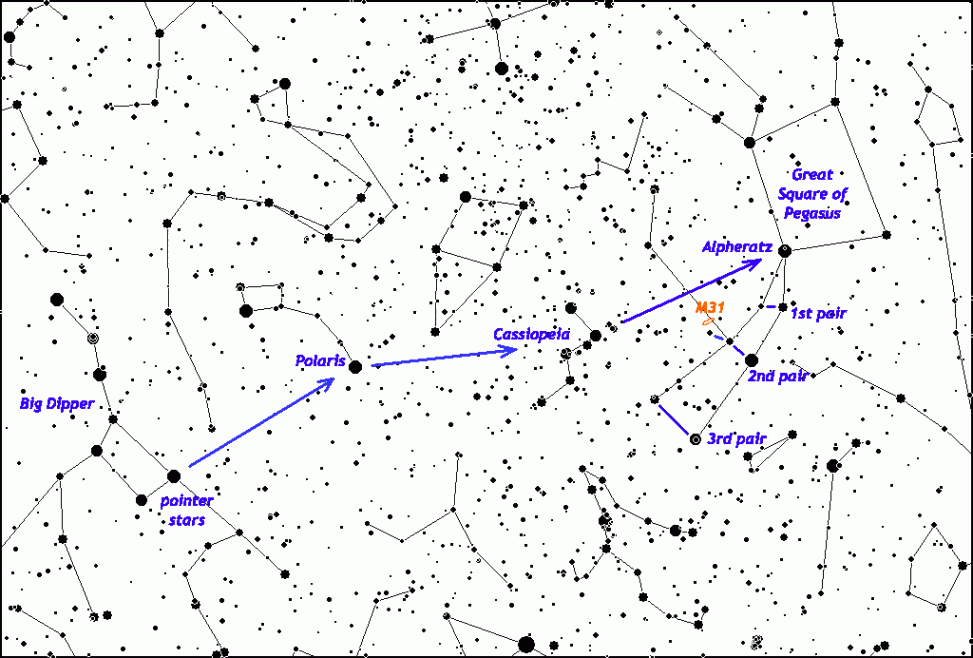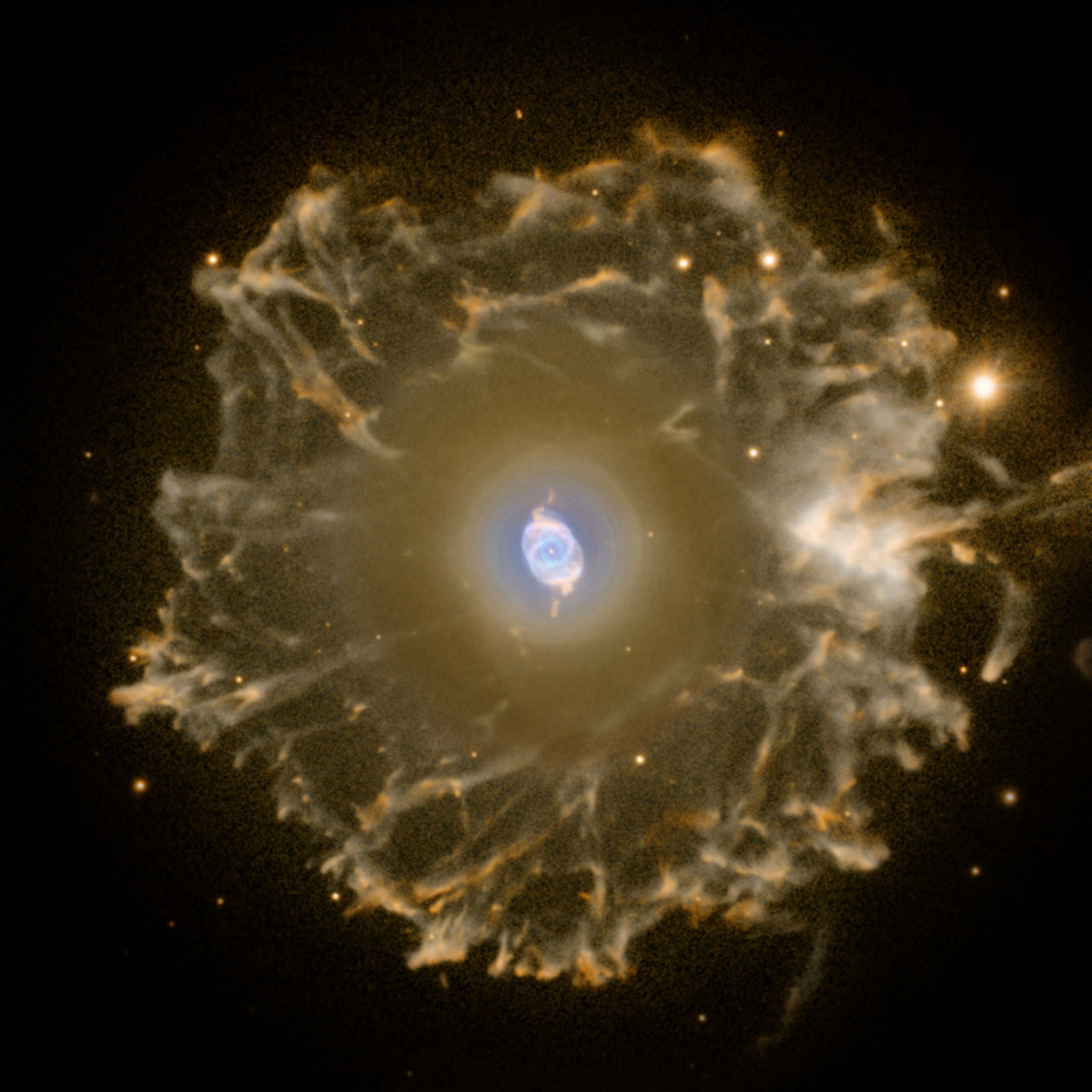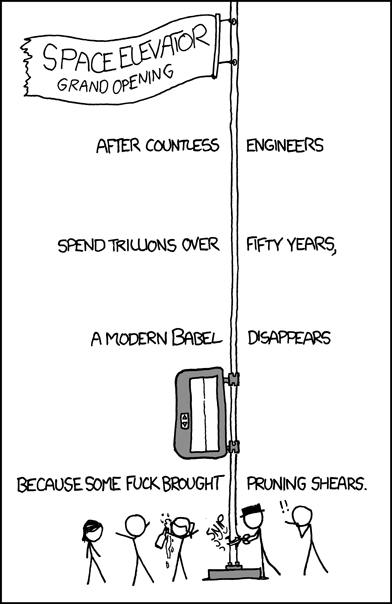Master Gunner wrote:Dark Energy. I understand that it's responsible for the accelerating expansion of the universe, but that's all I understand about it. Where does it come from, how does other work?
(I ask as my astronomy prof rambles on about spectral line analysis).
But spectral line analysis is what I do!
We do not know what dark energy is or where it comes from.
About 15 years ago astronomers where measuring the expansion of the universe using supernova. A certain type of supernova (type Ia) are always the same intrinsic brightness. Since you know the apparent brightness of the supernova you can work out how far away it is. If you know how fast the supernova appears to be moving away from us you can work out how fast the universe is expanding. Since light takes time to get to us we see further back in time the further we look out in the universe, allowing us to the universe's evolution.
The supernova observations showed that the rate of the universe's expansion is increasing. However the expansion that you would expect from the observed visible and dark matter would be decreasing. Dark energy was introduced as something to fill the gap and make theory fit with observation.
The idea of dark matter is Einstein's. Einstein introduced a cosmological constant to allow for a static universe in his models. This constant has the same properties as the simplest form of dark energy. When the universe was shown to be expanding by Hubble and others Einstein withdrew the constant, calling it his greatest blunder.
The Nobel prize in physics for 2011 was awarded for the discovery of the accelerating expansion of the universe. The head of the astronomy department I am in was a member of one of the two teams that independently made the discovery so he got go as one of the official guests of the laureates to the Nobel prize ceremonies in Stockholm.
Garfman wrote:This is prompted by Newt Gingrich's Moonbase Master plan:
Is there a good reason to go back to the moon? Is there anything we could get there that we can't here? Or should we focus on being somewhere we haven't been before?
There are valid scientific reasons to return to Moon as well as reasons related to the development of space travel. However there is no economic reason to go other than tourism.
Studying the Moon up close would tell us a lot about how the Moon formed and how the Solar System formed. The far side of the Moon could be a good place to put certain types of telescopes. The Moon is close by in space terms; going to the Moon would serve as a useful dry run of say going to Mars.
There is nothing on the Moon valuable enough to be worth the insane cost of shipping it back to Earth. Any Moon base would be heavily dependant on supplies and subsidies from Earth at least for decades. The Moon is quite an inhospitable place - colonies will most likely be underground.
I think we should try and go to Mars. On the way to Mars we will likely visit the Moon again. However space flight has to become faster, safer and most importantly cheaper before we set out on such journey. Even if space flight becomes much cheaper going to Mars will be a hugely expensive task.
Drdiggit42 wrote:Do you think inter-stellar travel will be possible within my lifetime?(I am 19)
Are there any planets in the alpha centauri system that could possible support life?
Interstellar travel is possible now. However it is also impractical. To travel to the closest stars with current technology would take hundreds of years.
To make interstellar travel practical we would need to be able to travel faster than the speed of light. Under our current understanding of the laws of physics this impossible. Physics would need a radical rethink such as the one the occurred at the start of twentieth century with development of relativity and quantum theory.
Predicting this sort of is quite difficult. I am going say practical interstellar travel in our lifetimes so I can be pleasantly surprised if it does occur.
Merrymaker_Mortalis wrote:Where can I find the Andromeda galaxy in the night sky (Britain)? I thought I could see the milkyway band the othe rnight and I got excited and searched for Andromeda.
No matter where you are on Earth you will find the Andromeda Galaxy (better known to astronomers as M31) in the Andromeda constellation.
Some Googling found this:

Source
http://astronomerica.awardspace.com/spacewalk-m31.phpYou will need a clear, Moonless in a dark site away from light pollution to see M31 with the naked eye. If you let your eyes adjust you should be able to see a faint fuzzy patch. Even looking through a decent sized telescope it will still look like a faint fuzzy blob. You need a decent telescope and a long exposure photograph to see any detail.
General Michi wrote:Merrymaker_Mortalis wrote:Also, when I was 6 I saw an orb in the sky with a 'ring' around it. What could that have been? I was convinced at the time it was Saturn and I have been confused ever since.
I saw Saturn about a year and a half ago so it very well could have been it
Merrymaker_Mortalis wrote:It was with my naked eye.
Might have been the Moon with an aura around it. However I can never be really sure as it occurred 16 odd years ago and is likely to be corrupted by memory.
Drdiggit42 wrote:I'm pretty sure I saw Saturn when I was young too. Despite light pollution and deceiving airplanes I get a pretty good view of the night sky at my house.
Unless you have anime sized eyes you need binoculars or a telescope to see Saturn's rings. To the naked eye it appears as a point source.
With out knowing when you saw your ringed object, where in the sky you saw it, and what size the ring was as well as things how bright it was and what colour it was I can not tell you what you saw. I am almost certain that you did not see Saturn; most likely the ring you saw was an atmospheric effect.
Since Saturn can one of the brightest planets - their brightness varies as we all moving around the Sun causing distance to them to change - most people have likely seen it with realising. Unlike Andromeda, Saturn is quite spectacular through a telescope.










